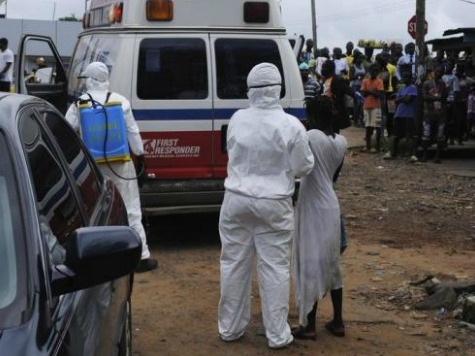A man found a dead newborn girl at a scrapyard in the ELWA Junction in Monrovia, Liberia, umbilical cord still attached. It is unknown if the baby died at the yard or if the girl was already dead. Residents said this was not the first such incident, as dumping newborns is increasing since Ebola broke out in the country.
Madam Rose L. Varney, social worker and the administrator of the nearby Liberty Clinic, said some health clinics refuse to treat pregnant women “due to fear of coming in contact with the blood and other bodily fluids of people, whose [Ebola] status they don’t know.” This might keep pregnant women from seeking medical treatment. Those who did attempt to receive treatment were rejected by the health centers and hospitals.
Varney is pressuring national organizations to remember the pregnant women in Liberia. She wants them “to address the case of pregnant women before the infant mortality rate in the country climbs.” A few ideas include “free and compulsory treatment” for pregnant women within Ebola countries.
“This could encourage pregnant women to go to [the] hospital amidst the Ebola crisis which has also plunged our economy,” she said.
The Liberia National Police Department is not investigating the death of the baby. “We aren’t investigating this case, because every dead body is assumed to be an Ebola victim,” said one officer. “If it was normal time without being under State of Emergency, we would have investigated this matter, and made some arrests. The first suspect would be the iron guy (scrap scavenger) who discovered the dead child.”
The Healthy Newborn Network (HNN) is one organization that is addressing the need to help pregnant women in West Africa. HNN is a network of medical professionals and organizations to advance “newborn health around the world,” especially in developing nations. The network posted a blog by Dr. Babatunde Osotimehin, director of the United Nations Population Fund (UNFPA) and Nigeria’s former minister of health, about the neglect pregnant women face because of Ebola. He also asked the world to help fund “the reproductive health needs of women and mothers in Guinea, Liberia and Sierra Leone.” He said the advancement of medical treatment for pregnancy and newborns in these three countries is gone due to the Ebola outbreak. The doctors and nurses are consumed with Ebola, thus neglecting pregnant women. Osotimehin said the UNFPA estimates “more than 800,000 women” will give birth in the next twelve months, and “120,000 of these pregnancy women will face complications during pregnancy and childbirth, and could die if the required life-saving emergency obstetric care is not provided.”
Osotimehin said UNFPA is “ready to serve Ebola’s most vulnerable victims: pregnant women.” From his blog:
UNFPA is working in close partnership with the governments to restore health services, particularly to expectant and new mothers. We are setting up mobile clinics and recruiting retired midwives for delivery care at the community level. We are providing emergency clean delivery kits for women without access to clinics. We have delivered disinfectants, hand-washing equipment, and protective equipment, such as heavy-duty aprons and medical gloves, to facilitate safe delivery while protecting health workers from possible infection. We are also providing information to reduce fear and promote health seeking behavior.
The organization needs $64.5 million to provide all these services in the three countries. They only have $3 million to help pregnant women.
“Losing a baby is a devastating blow in this Ebola crisis,” said Varney. “When it happens, it is hard to know how to cope, both practically and emotionally because of the unwillingness of many health centers to contact anybody’s blood and fluid. We hope things could get better.”

COMMENTS
Please let us know if you're having issues with commenting.